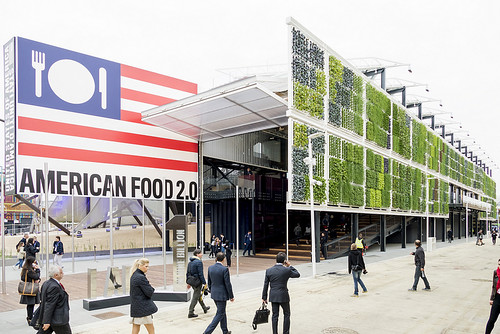
Just like America, Europe is trying to address the challenge of how to feed the 9 billion people who will populate the world by the year 2050. In fact, the theme of ExpoMilano2015 – the world’s fair being held in Milan, Italy, this year – is “Feeding the Planet, Energy for Life.” On May 1, the European Union kicked off the Expo with a series of meetings, lectures and discussions surrounding that theme, and I was invited to take part.
The agricultural sector in the EU must produce food for more than 500 million consumers. At the meeting I attended, discussion focused largely on what research priorities should be established to inform the EU’s centralized agricultural policy, specifically on how to achieve three goals:
- Ensuring a reliable supply of healthy, affordable food
- Making agriculture greener and more efficient
- Revitalizing the countryside and its rural communities
I heard a lot of interest among attendees in potential solutions geared not only towards increased food production, but also towards reducing the vast current amount of food wastage in developed countries and food loss in developing countries. As is the case here, as much as 30 percent of the food produced in the EU is discarded uneaten at various stages of production, processing, retailing and consumption. In the developing world, a similar amount of food is lost during production and storage to diseases and pests, rot and rodents.
People in the EU are also very interested in sustainability, with emphasis on research for sustainable intensification of agricultural production and climate change adaptation. Other priorities focus on research for improving nutrition, food safety and quality, and reducing waste; and research on food markets, trade and equity in a globalized food system. The EU is working towards finding common solutions to these issues with other international organizations, countries and private stakeholders. The dialog on the EU’s research priorities will continue during the 6 months’ life of the Expo, with numerous opportunities for public engagement.
Of course, the U.S. has a large ongoing presence at ExpoMilano, which will run until Oct. 1. U.S. Special Representative for Global Food Security Nancy Stetson is also meeting with members of civil society, business, and academia in Milan to discuss the challenges of ensuring food security and nutrition in rural areas and - as urbanization increases - in cities. And an impressive U.S. Pavilion showcases the United States as an innovator in the food sector and in many aspects of culture, science and business. You can follow these activities on Twitter at @StateDeptGFS or on Facebook.
It’s going to take all of us to meet the challenges ahead.
